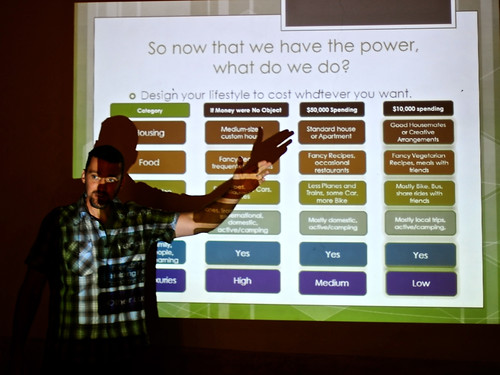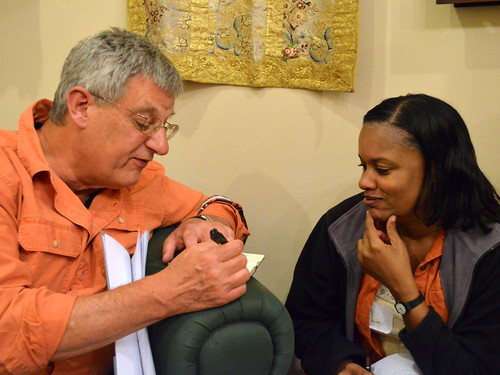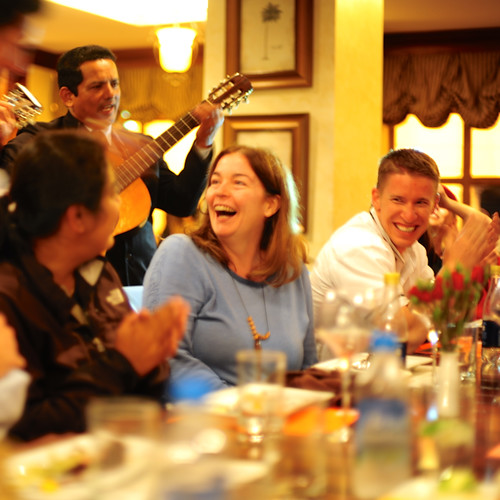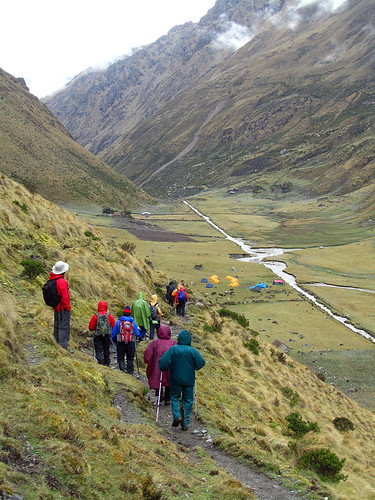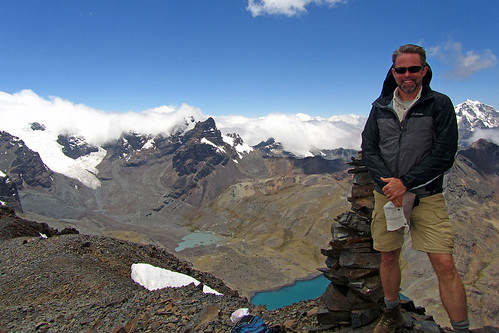You can achieve greater happiness and general life satisfaction by improving the quality of your daily life. There are two ways to do this. You can change your environment or you can change yourself. Each has its merits.
Sometimes the best way to boost your happiness is by changing the world around you.
Imagine, for instance, that you’re sitting at home reading a book. You’re comfortable except for one thing: You’re warm. Very warm. An external condition is causing you discomfort.
You could change the way you’re experiencing this condition (by removing all of you clothes, say), but in this case it probably makes more sense to change the condition itself by lowering the thermostat.
Or maybe you’re sitting in a restaurant writing a letter. Things are fine except that the place is too noisy, which is distracting. Your best bet is to change locations, to change your environment.
The trouble, of course, is that you have little control over the world around you.
My girlfriend was born and raised in northern California. To her, that’s the ideal climate. She’s been in Portland for three years now, and she loves much about the city and the region. But she hates the climate. This is an external factor that’s beyond her control. As hard as she tries, she can’t make it rain less in Portland! (Francis Bacon once said, “Nature, to be commanded, must be obeyed.”)
When you reduce the size of your immediate environment — stepping from outdoors to indoors, for instance — you make it easier to control external conditions. You can’t reduce the outside air temperature, but you can cool a room or a building. Even then, exerting influence over your environment requires a great deal of effort and energy.
Usually, the most effective way to boost your happiness isn’t by changing external conditions, but by changing how you experience external conditions.
Instead of reading a book at home, imagine you’re reading in the park. It’s cold. The sun is out, but the January air is chilly. You could head indoors, but you’re enjoying the lovely day. The solution is to change how you’re experiencing the world around you. Put on your jacket and some gloves. You haven’t altered your environment, but you’ve changed how you’re experiencing it.
Or maybe you’re backpacking through Europe, staying in hostels and cheap hotels. Sometimes it’s tough to sleep because the walls are thing and there’s nothing covering the windows. Light and noise threaten to keep you awake all night. Again, the best solution is to change the way you experience the external conditions. If you don an eye mask and wear earplugs, you can rest comfortably despite the chaos around you.
Most people recognize that they have limited power over their physical world, but many cling to the belief that they can change the behavior of the people around them. In reality, changing others can be nearly as difficult. Writing in How I Found Freedom in an Unfree World — a book we’ll discuss at length in the months ahead — Harry Browne calls the idea that you can (or should) control what others do the Identity Trap.
He writes:
[You can’t] assume that someone will do what you’ve decided is right. You’ve decided it from your unique knowledge and interpretations; he acts from his knowledge and his interpretations.
You’re in the Identity Trap when you assume an individual will react to something as you would react or as you’ve seen someone else react.
If you’re unhappy with somebody, there are two options. You can attempt to change the other person, or you can change how you interact with that person. You’re almost always better off changing yourself — altering your expectations, accepting new premises — than you are attempting to change the other person.
Here’s Harry Browne again:
You could make everyone else be, act, and think in ways of your choosing if you were God. But you aren’t. So it’s far more useful to recognize and accept each person as he is — and then deal with him accordingly.
You can’t control the natures of other people, but you can control how you’ll deal with them. And you can also control the extent and manner in which you’ll be involved with them.
The paradox is that you have tremendous control over your life, but you give up that control when you try to control others. For the only way you can control others is to recognize their natures and do what is necessary to evoke the desired reactions from those natures. Thus your actions are controlled by the requirements involved when you attempt to control someone else.
[…]
Each individual seeks happiness for himself in the way that his knowledge and perception indicate to him. He isn’t you; don’t expect him to be.
People suffer a great deal of unhappiness because they assume that everyone wants the same things — or that they should want the same things. But each person is different, with her own knowledge, experience, preferences, and attitudes.
You can improve your quality of life by either changing your environment or by changing how you interact with your environment. Both strategies have their place, but one is generally much easier and more effective than the other. In most cases, it’s difficult or impossible to change the world around you. Attempting to do so simply leads to frustration and unhappiness. However, it’s almost always possible to change how you perceive the world around you. In fact, it’s this ability that contributes most to day-to-day contentment.


